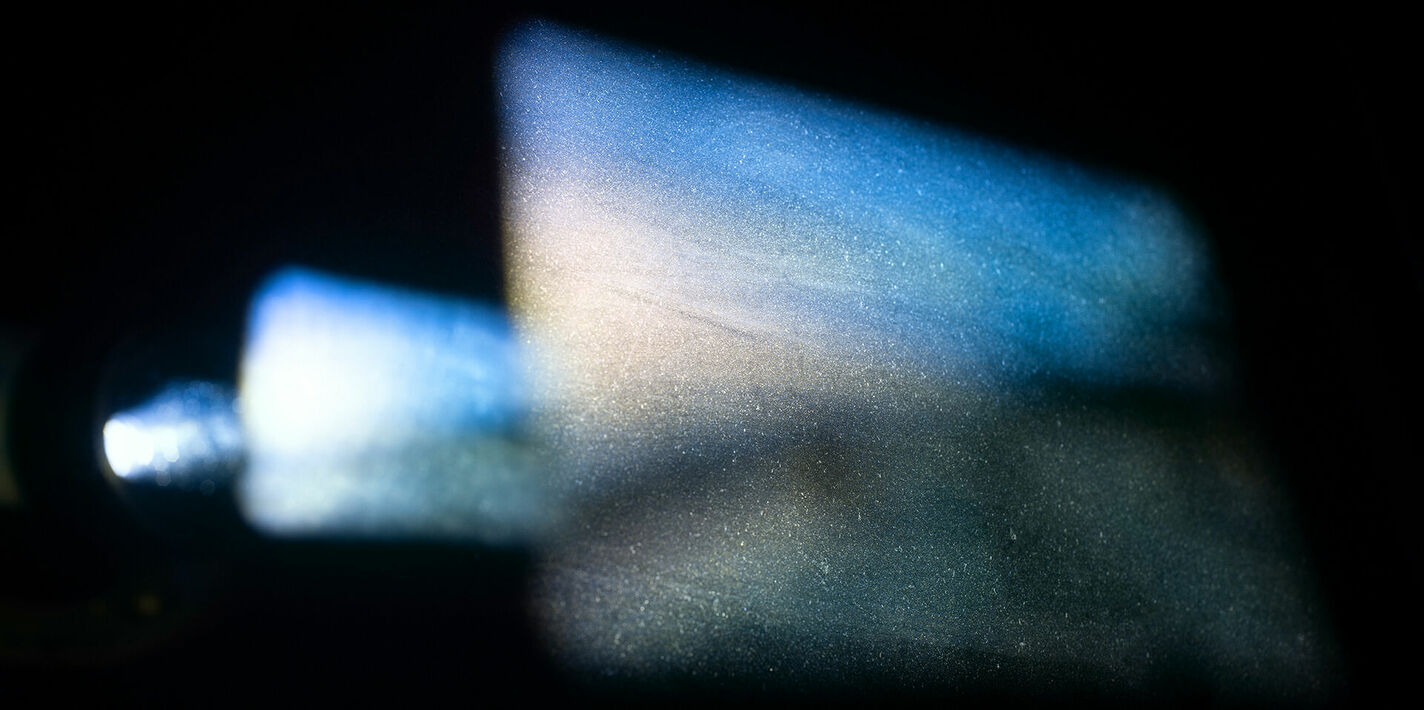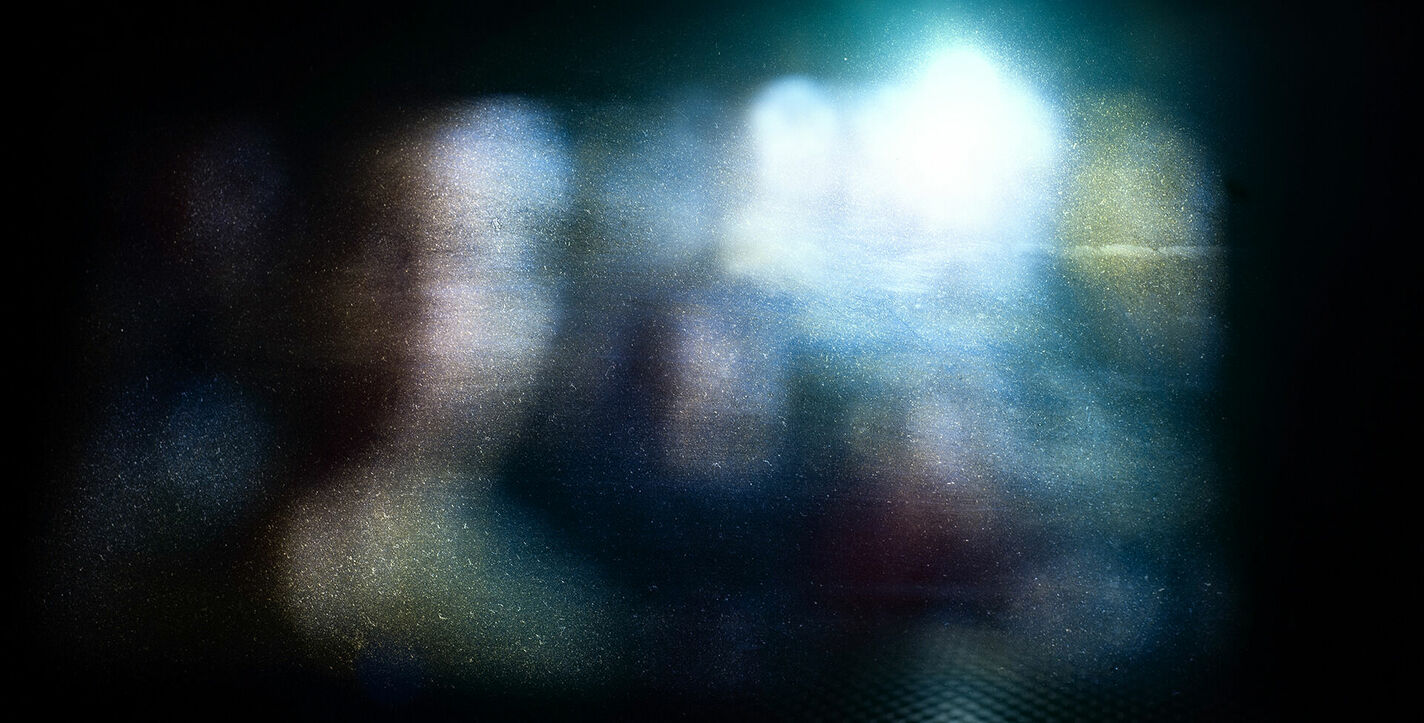Publications
Research at the Film University uses the entire range of different publication formats to communicate its findings, from journal articles and conventional books to digital formats. As a documentation of the results of scientific research, publications are cornerstones of professional discourse and have an impact largely outside the university. To reintroduce this discourse as a living practice at the Film University, the Babelsberg Book Salon event series was established. Journals and series published by Film University members present select research topics in their breadth; additionally, dissertations written at the university are regularly published in this section. Information on topics of still ongoing PhD research can be found here. The Filmmuseum's publications are listed on its website. Papers are available on each researcher's personal page.
Series and Journals

FILM, FERNSEHEN, MEDIENKULTUR. (FILM, TELEVISION, MEDIA CULTURE) Publication Series of the Film University Babelsberg KONRAD WOLF
Editors: Jens Eder, Lothar Mikos, Michael Wedel, Claudia Wegener.
The link between media and culture is nowadays no longer disputed. Media can be thought of as an integral part of culture; moreover, culture is communicated to a considerable extent through media. Media are the authoritative forums of social communication and thus vehicles of a discourse in which cultural practices, conflicts and coherences are structured. The series of publications of the Film University Babelsberg KONRAD WOLF takes up such a view of media culture and relates the associated topics to film, television, and digital media in line with its fields of teaching and research. Different viewpoints are adopted, dealing equally with media formats and content, recipients, and communicators. The volumes of the series are linked to different disciplines. They combine genuine questions of film and television studies with approaches from cultural studies and sociology, discuss aspects of media and communication studies, and include practices of artistic use of media. The theory-driven research, historical and empirical studies in the series take place against the background of increasingly accelerated technological change and aim to do justice to the development of film and television in the digital age. New forms of representation and storytelling are examined, as are changing environments and patterns of audiovisual moving image use, which differ from traditional practices of media use in terms of mobility and interactivity.
- Wiesbaden: VS Verlag für Sozialwissenschaften / Springer Nature, ISSN: 2524-3047 / titles of the book series
CINEPOETICS
Editors: Hermann Kappelhoff, Michael Wedel.
The publication series Cinepoetics targets a theoretical and analytical reconsideration of the discursivity of audiovisual images. The focus is not on the circulation of media representations, but on the manner of this circulation: How do audiovisual images as figurations of media experience refer to other audiovisual images? What does it mean to describe different modes of audiovisual experience and recursivity as forms of cinematic thought? From this perspective, the titles in the series offer explorations of the aesthetic dimension, historical function, and cultural significance of their subjects, by means of which the poetic logics of audiovisual images are to be made accessible to a cross-disciplinary readership.
- The book series Cinepoetics is published by De Gruyter, titles of the book series
ALLTAG, MEDIEN UND KULTUR (EVERYDAY LIFE, MEDIA, AND CULTURE)
Editors: Joachim von Gottberg, Lothar Mikos, Elizabeth Prommer, Claudia Wegener.
The series Alltag, Medien und Kultur (Everyday Life, Media, and Culture) primarily publishes empirical, but also theoretical works that address the connection between everyday life, media and culture from the viewpoint of the social actors, the media users. With its media sociological orientation and interdisciplinary focus, the series contributes to the dialogue between media practice, media and communication studies, media education and youth protection as well as to the discussion about the social significance of media in the 21st century. Launched in 2007 by Prof. Dr. Lothar Mikos.
- Köln: Herbert von Halem Verlag / titles of the book series
FILMERBE (FILM HERITAGE)
Editor: Chris Wahl.
The Film-Erbe (Film Heritage) series compiles historical works that also reflect on the preconditions of historiography, and studies on the present-day situation, i.e., for example, on pragmatic and political issues, as well as forward-looking reflections on concepts, terminology, strategies, and theories. Digitalization has not only fundamentally changed film production and reception behavior but has also had fundamental effects on the situation of film archives. On the one hand, they are handing over their core competence of safeguarding to the data centers, where digitized films are stored and maintained, and on the other hand, they need to take care that their analog holdings do not disintegrate under their hands because money is no longer available for them. The order of the day is access, and even if this sometimes makes many problems invisible: digitalization has given film heritage potential attention of unprecedented proportions. In this series, 'film' is understood in its full range of meanings, as material, as medium, as art, as an audiovisual moving image. 'Heritage,' in turn, raises the question of how what is preserved for whom by whom to what end. This question is also interesting because the great availability today is counteracted by an increasing forgetfulness of history, because curation and contextualization are needed to direct and focus attention, and because there is a mismatch between the ubiquity of audiovisual media and ignorance of the problem of their obsolescence.
- München: edition text+kritik / titles of the book series
CADRAGE. Beiträge zur Film- und Fernsehwissenschaft (Contributions to Film and Television Studies)
Editor: Ursula von Keitz.
Film and television studies encompasses theoretical, aesthetic, and historical reflection on film and television as media formats, dispositifs and institutions. The Cadrage series is a publication platform for film and television studies. Its objective is to give film and television a profile in current debates in media and cultural studies that is both recognizable and transdisciplinary. Narratology, genre and genre theory, reception theories, gender studies and cultural studies contribute significant models to this end. Cadrage offers a space for research on film and television genres and programs, on their cultural-historical context, and on the stylistic and narrative characteristics of film and television in their specific diachronic and synchronic contexts of creation and reception. Papers on the relationship of film and television to other forms of artistic expression and representation, as well as to popular cultural phenomena, round out the profile of the Cadrage series.
- Göttingen: Vandenhoek & Ruprecht / titles of the book series
BABELSBERGER REIHE. Texte aus der dramaturgischen Praxis
Editors: Jens Becker, Hans-Joachim Neubauer.
The series publishes new texts on dramaturgical practice that are intended to present the state of research in the Screenwriting/Dramaturgy program to the professional public. Where possible, the publications in this series should be multi-media, i.e. linked to a website, with film examples or similar on the Internet.
- Leipzig: Vistas Verlag /
MEMENTO MOVIE – audiovisual cultural heritage materials
The weblog Memento Movie, maintained by Jürgen Keiper and Prof. Dr. Chris Wahl since February 2013, pursues the idea of collecting and making available fundamental information and thoughts on the topic of film heritage in contrast to daily news. These ‘materials’ include interviews in various formats (written, audio, sound, and moving image), shorter essays, references to publications and suchlike, annotated links, and handouts on individual topics.
The development and establishment of the blog was funded by the Federal Government Commissioner for Culture and the Media (BKM) based on a resolution of the German Bundestag.

